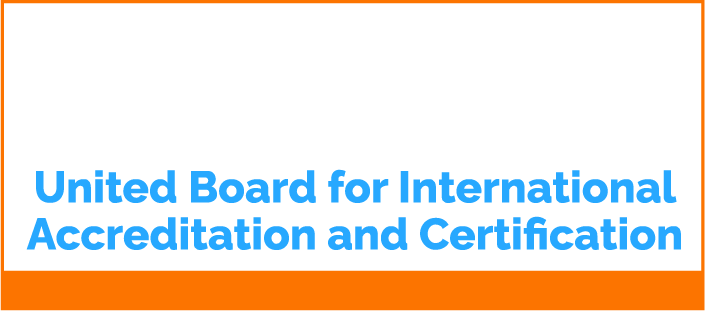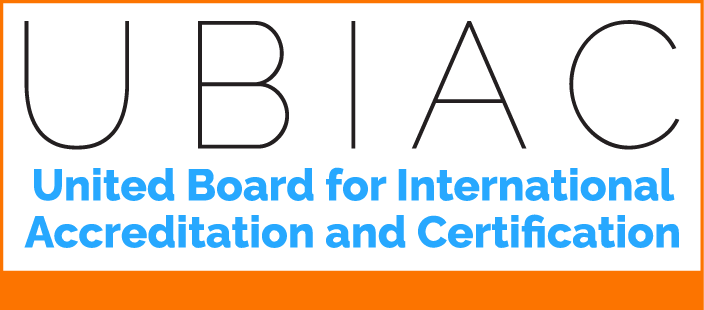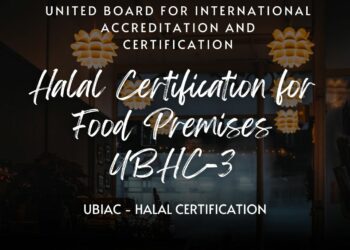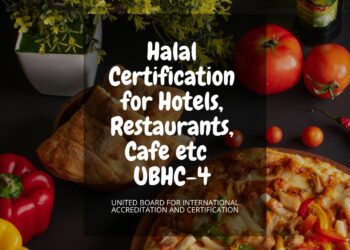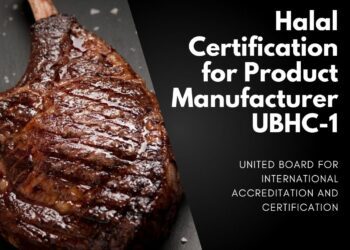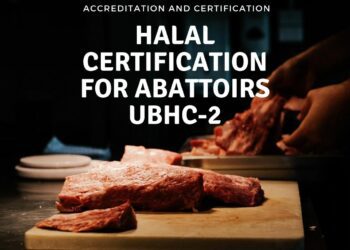Halal Certification
As a business, it’s important to understand the importance of halal certification. Halal certification is a process that ensures a product or service is compliant with Islamic law. This can be a valuable marketing tool, as it shows that your company is respectful of Muslim consumers. In the Halal certification can also be a valuable asset for companies looking to do business in Muslim-majority countries.
In these countries, halal compliance is often a prerequisite for doing business. Understanding the halal certification process and what it entails can help your company be prepared to do business in these countries. We’ll discuss the basics of halal certification, and how it can benefit your startup.
The process of obtaining halal certification can vary from country to country. In general, however, it involves an assessment of the ingredients and production process to ensure that they comply with Islamic law. Once a product or service has been certified as halal, it will be labelled as such, so that consumers can easily identify it as being compliant with their religious beliefs. halal certification can help your startup to tap into new markets and gain credibility. If you’re considering halal certification for your business, we can help you in the process and requirements to ensure that you are able to meet them. Some of the benefits of halal certification include:
- Gaining access to a larger customer base (as halal products are in demand from Muslim consumers)
- Demonstrating your commitment to Islamic values
- Increasing your company’s credibility
- Facilitating trade with Muslim-majority countries
Certifications
Product Certification
Certify your products as Halal. Start your halal certification process today.
Warehouse Certification
Get Halal certification for your warehouse. We have the expertise and experience to help your business grow.
Restaurant Certification
We provide Halal certification to restaurants and corporations. Muslim-friendly business practices.
Halal Certification Training
Learn how to get certified. Get trained by certified experts. Halal Certification Training by UBIAC
Halal Friendly Tourism
Halal Friendly Tourism Network brings together the travel industry, Halal-certified companies and Muslim travelers.
Halal Friendly Medical Tourism
How is halal friendly medical tourism changing the industry? How will it benefit medical tourism? Discover the answers today.
Global Halal Food & Beverages Market Share
range of markets
Meat & Poultry
For buyers and sellers of Halal meat, poultry and seafood.
Dairy Products
Get your dairy products halal certified by our accredited certifiers.
Coreal & Grain
Get your products certified halal with our halal certification
Fruits & Nuts
Halal Fruits, vegetables and nuts are certified by UBIAC. Find out how you can get your products halal certified.
What is Halal Certification?
Halal Certification signifies that the products are endorsed by Islam. They can be consumed or drank by Muslims. UBIAC Halal Certification unit is supervised under Islamic institution which has existed since its inception. This increases Halal consumers’ confidence when eating Halal food at hotels and restaurants and also in the form of medicines and vitamins. This is a trustworthy and reliable proof of food producers who claim that their products comply with the strict Halal standards in accordance with Shariah Law.
Which Products Require Halal Certification?
The majority of people are familiar with Halal foods with meat-based products. Muslims must make sure that every food item, including processed food and pharmaceuticals is Halal. They are often made up of animal byproducts, or other ingredients that aren’t allowed to be consumed by Muslim consumption.
A lot of food producers, especially those from non-Muslim countries, believe that products made from vegetables are safe to consume by Muslims. Halal certification is not required to be obtained through the Islamic Bodies. The UBIAC Halal Certification System is not only cover the raw materials. It covers every aspect of production, such as packaging and labelling, storage and transportation.
Every plant is Halal as long as they aren’t toxic or designed to be utilized for Haram food. A processed food derived from vegetables that isn’t Halal is one that is contaminated by filthy or Najis. To enhance the taste of vegetables shortening or fats are employed. These enhancers may have been derived from non-halal animals. Certain vegetable fats are processed using the same equipment that makes non-halal animal oils. Certain packagings may include animal grease, like pork fats. The packaging may also be in close contact with Halal vegetable-based products. This makes them Haram and inequitable to be consumed by Muslims.
Only Halal food production is permitted in the facility and premises. It is not permitted to make use of the same premises and facilities to produce non-halal or Halal production of food. However, these facilities and facilities should be kept clean according to the Syariah Law. This strict procedure is put in place to ensure that that Halal food is not infected with Haram elements, or any other element that are considered to be as filthy (Najis) in accordance with the Syariah Law.
Halal certification is not applicable to food items only. Raw materials, non-alcohol drinks, and other products needed for food processing pharmaceutical and health products as in traditional herbal products cosmetics, personal care items, cleaning products, everyday consumable items as well as leather-based items (e.g. Furniture, shoes and handbags) are just a few examples of products that need to be Halal to be suitable for Muslim consumption.
Halal certification is mandatory for all establishments such as hotels, restaurants slaughterhouses, packaging and labeling materials, to ensure that they’re safe for use by Muslims.
What are the categories of Halal Certification?
Category:
All applicants seeking Halal certification are in one of the three categories.
Abattoir: Islamic Halal Zabiha is an Shariah-compliant slaughter which comprises Beaf (buffalo) and Mutton (goat and sheep) and Chicken.
Manufactured and Processed Product: This includes food items such as ingredients, food snacks, seafood, dairy products and non-food items such as cosmetics, pharmaceuticals, as well as other consumables.
Food Premises: Restaurants, hotels and canteens Hostels, Food Chains, Restaurants, Airlines, Railways and Hospitals
What UBIAC wants assurances from consumers that the products must be free from?
- A forbidden portion of an animal’s body in Shariah
- In accordance with Islamic rules, items that are impure aren’t allowed.
- It is not advised to make or prepare impure products.
- It is not recommended to be within close proximity to any haram or impure material.
What products and animals are unlawful (Haram) in Islam?
- Swine meat and its products
- Dead animals
- dogs,
- Animals were killed with no intent of mentioning Allah’s name.
- insects except grasshopper
- blood barring spleen and livers of haram animals
- River animals, except fish
- Ethanol and wine.
What are the rules for Halal Certificate?
If the inspection report confirms that the applicant is Halal qualified, UBIAC will issue a Halal Registration Certificate valid for one year. The applicant must display this certificate at his location to show the eligibility to Shariah Halal conformity. This certificate does not prove that a particular product is Halal. The registered applicant must obtain an Halal certification for the specified brand/product in the specific number. lot, quantity or production cycle following the fulfillment of specified Halal standards and paying the requisite fee.
What is Halal Certificate for Consignment?
Once a company is registered for Halal process can apply for the issuance of a Halal Certificate on the basis of an individual consignment, invoice or periodic lot. It can also apply for the printing of the Halal logo on its products. The Halal certificates can be issued in standard formats and are signed only by an authorized signatory. They are printed with the United Board for International Accreditation and Certification (UBIAC) logo and seal. The company will charge nominal fee to issue a Halal certificate as well as printing of the logo as described in the schedule of fee and service charges.
How do I Register?
The applicant has to apply to be registered as a producer or supplier of Halal products. Two copies of the prescribed application form should be obtained at the UBIAC’s office, or downloaded from the UBIAC’s website. The application form is divided into three sections. Part I is for general details about the applicant. Part II is devoted to specific categories of information like whether the applicant is a food producer , abattoir, or are food service establishments. Part III is concerned with specifics of the product, such as ingredients, manufacturing procedure and other details. Include the application with the cover letter on official letterhead and an affidavit in the ₹100 stamp paper.
How to obtain Halal Certificate?
Before we go into the specifics before we get into the details, it is crucial to understand that Halal Certification implies that products are permitted to be sold under Islamic law. Jewish and Muslims have institutions that guarantee the quality of food, packaging design and security. For many years, Kosher has provided vigilance in this field. It is the appeal of Islamic Halal Certificate Organizations that they can provide both the highest quality of food and meet Halal requirements. This is the reason that many international market for halal look for organizations that are certified as halal.
The Halal Certificate logo is visible on the product. This permits consumers to purchase without having to worry about whether the product is contaminated by materials that are considered to be haram. Muslims all over the world are worried about a variety of problems, including blood contamination of plasma, pork contamination grease used in packaging, and many other issues. Halal food products must comply with Islamic regulations, which means that buyers can purchase without doubt. The issues are addressed by using analytical techniques and ingredient code.
What is the Fee structure of Halal Certification?
| New Registration 3-year Cycle | : | Rs. 70000 + Rs. 1500/product + GST |
| New Registration 1 Year Cycle | : | Rs 30000+ Rs 500/product+ GST |
| Halal Logo Printing | : | Rs. 25000 per year (All certified products) + GST. |
| Renewal fee (3 year cycle) | : | Rs. 60,000 and 1000/product + GST |
| Renewal fee (1 year cycle). | : | Rs. 25000 and Rs. 500/product + GST |
| Consignment Certificate Charges (For Meat Products) | : | Rs. 1200 Per Container/ Shipment |
| Consignment Certification Charges (For Non-Meat products) | : | Rs. 1500 per container/shipment |
| Auditor Expense | : | Rs.1500/man/day + Travel expenses, lodging and boarding |
What is Pre Audit Inspection?
Once the application is received and scrutinised UBIAC shall depute 2 member from audit team(one shariah auditor and one technical auditor) as per mutual convenience to visit and inspect the plant/factory/premises of the applicant.
What is covered in inspection process?
- Documentation
- Distribution of products, processing and handling
- Storage, display and products that serve
- Hygiene, cleanliness, and food security
- The fundamental aspects of the structure
- Tools, machines and apparatus
- Labeling and packaging
What is Inspection Report and Halal Certified File?
The report will be prepared following inspection. It will then be signed by both parties. The report will be stored in the plant, along with copies of all documents supplied as well as correspondence with UBIAC, and other relevant documents. The file will be referred to as ‘Halal Certified File’.
What are Audit expenses?
The applicant shall bear the costs of auditing by two people, including reimbursement of actual Air fare economy class/Train ACII/local transport by taxi plus lodging & boarding in decent hotels, as well as food and refreshment throughout the journey. Audit fee of Rs. 3000 per unit per day.
